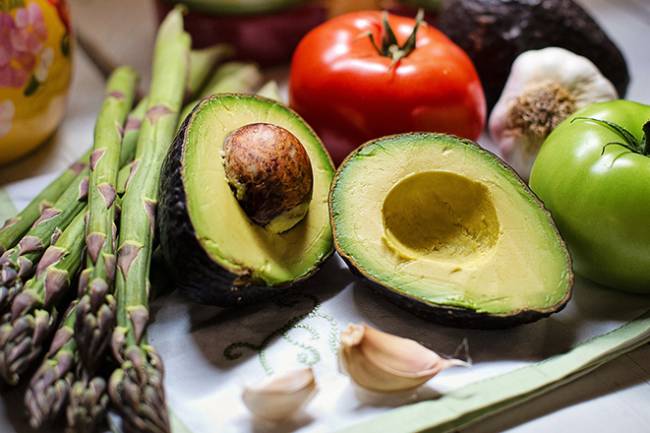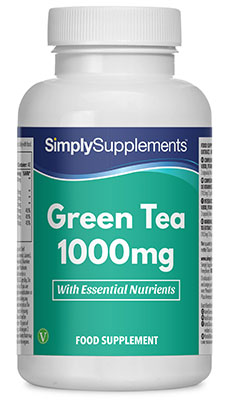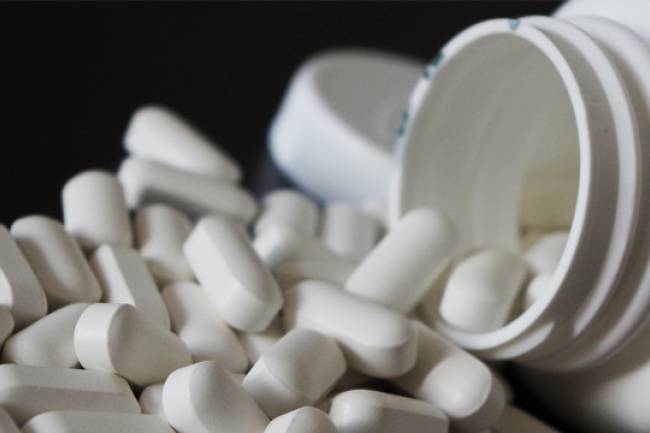Health Benefits of Green Tea

Tea is one of the most popular drinks in the world, and has been for centuries. Recently, more and more research is being done into the health benefits of various blends. In this area, green tea’s name is brought up time and again, for its positive effects on the human body. Before we can explore those, though…
What is Green Tea?
The tea is made using the leaves of the Camellia sinensis tree, which are withered, crushed into a powder and whisked into very hot water. It’s incredibly popular in East Asia, with its sweet flavour not only being enjoyed by itself, but being added to things such as ice cream and soft drinks. The two most popular types of green tea are Sencha and Matcha, from Japan and China respectively.
What’s important is the fact that, unlike other tea leaves like oolong, green tea leaves are not fermented, which leaves a lot of its nutrients intact when drunk. These are key in its ability to have a healthy influence over the body, especially compared to black and other types of tea.
Nutrients
The specific chemicals in green tea that imbue it with its famous health properties are a type of naturally-occurring chemical called polyphenols. These are preserved in the leaves when being prepared for drinking, which is the opposite for a lot of other teas.
More specifically, the polyphenols that are found in green tea are epicatechin, epigallocatechin, epicatechin gallate and epigallocatechin gallate – what some scientists refer to as the “catechins”. These tongue-twisters are the chemicals that are used in green tea extract capsules, as they are responsible for the antioxidant effects of the tea. These antioxidants are a major contributor to maintaining the health of the human body.
Antioxidants
Without getting into the complex chemistry involved, antioxidants prevent damage to the inner workings of cells in the body, on an atomic level. This damage is caused by free radicals – chemicals that disrupt the bonds between atoms. Both free radicals and antioxidants are required in the human body, although alcohol, smoking and polyunsaturated fats can cause an increase in free radicals and, eventually, bring about imbalance in the body.
The consequence of this overload of free radicals is oxidative stress, where this cell damage becomes more serious, attacking nerve cells. This can cause diseases such as Parkinson’s and Alzheimer’s in the most serious of cases. In the meantime, green tea can help maintain a healthy balance of antioxidants in the body.
The actual effects of the antioxidants have been tested repeatedly, with some reports saying that green tea can help with…
Fighting Cancer
This is a claim that lends itself to sensationalist tabloid headlines – the antioxidative effects of green tea may prevent cell damage that could result in cancer. According to a 2005 study, green tea is treated as “an acknowledged cancer preventive in Japan.” They determined that a preventative amount of green tea is roughly ten Japanese-sized cups a day. This sounds like a huge amount, but it only equates to about 2.5g of green tea extract – a more manageable amount when you consider that’s three pills a day.
Another study looked into the direct effect of green tea on tumours themselves: antioxidants lowered cytotoxicity and inhibited intercellular communication, which are two possible mechanisms “by which tumour promoters may produce their promoting effects.” In other words, the previously-mentioned polyphenols may slow tumour growth. Another study to back this up is a year-long look at individuals who were susceptible to prostate cancer; after taking the catechins from green tea only one tumour was diagnosed amongst 30 participants taking the supplements.
While this is exciting, research into these effects is still in its infancy. Many scientists claim that an overuse of antioxidants may actually make cancer worse (one study proved this, looking at mice with skin cancer and the antioxidant N-acetylcysteine). The strength of green tea, as we currently see it, is in how it contributes to the prevention of cancer and not as a miracle cure, as it’s sometimes reported by journalists.
Heart Health
With green tea being related to longevity, heart health is thought to be an important factor in this. The drink has multiple effects, once again stemming from its antioxidative qualities.
A large-scale study of 805 men, aged between 65 and 84, who had diets featuring flavonoids (a subset of polyphenols, found in green tea) took place over five years. It found that the intake of these flavonoids is “significantly inversely associated with mortality from coronary heart disease,” as well as myocardial infarction. Another massive study, of over 1300 Japanese men over the age of 40, again showed green tea had preventative qualities against heart disease. What’s interesting about this study, however, is that it mentions another quality of the tea’s effect on the heart – the lowering of cholesterol.
The polyphenols in green tea have a positive effect on cholesterol, according to research. One study states that, alongside a low saturated fat diet, green tea can help reduce low-density lipoprotein (LDL) cholesterol. This is the “bad” cholesterol doctors and dieticians talk about when explaining heart health, and a contributor to cardiovascular disease.
Another study, testing green tea’s polyphenols in cholesterol-fed rats, support the idea of lowering LDL cholesterol. Additionally, the study found that green tea also increased the levels of high-density lipoprotein cholesterol – the “good” cholesterol.
Green tea, along with some lifestyle changes, can go far to help improve heart health. It can be much less effective by itself, though, with one particular compound helping break down harmful protein - epigallocatechin-3-gallate (EGCG) – being easily broken down by the body. This means a huge amount of tea needs to be drunk in order to raise levels of EGCG in the blood high enough to be effective. It’s much better for you to diet more thoughtfully than to overload on tea!
Blood Pressure
Speaking of blood, green tea has been shown to lower blood pressure (and not just because of the relaxing nature of the drink). In one study the extract alone, over the course of three months, was enough to decrease systolic and diastolic blood pressure “significantly” compared to a placebo group. Of course, this has a knock-on effect of reducing the risk of stroke and heart disease.
Interestingly, these pressure-relieving effects may be exclusive to green tea extract supplements only. Another study from the Journal of Hypertension looked into drinking green or black tea and their effects on blood pressure. They found that drinking tea in this form caused an increase in blood pressure, enough to counteract any benefits that might have been gained, and concluded that “any acute effects of tea on blood pressure did not translate into significant alterations in ambulatory blood pressure during regular tea consumption.” Whilst this study could be criticized for using multiple different drinks, this may reflect reality better, as people may not be solely drinking one kind of tea throughout the day.
Inflammation and Arthritis
Another famous quality of green tea. Once again, it’s the polyphenol ECGC and its antioxidative effects that can assist with inflammation. Research in the Journal of Immunology has shown that it can reduce fibrosis – the thickening of scar tissue that occurs after an injury – and believes in its “therapeutic potential. “ In mice, green tea polyphenols have been shown to tackle chronic inflammatory diseases, such as inflammatory bowel disease.
These anti-inflammatory properties also extend to the pervasive and debilitating disease of arthritis. It’s believed that green tea can be of benefit to the swollen, aching joints of those who suffer; polyphenols are recognized by the Arthritis Foundation for maintaining healthy joints.
There is research to back up these claims, too – green tea polyphenols have shown to inhibit aggrecanses, enzymes that can lead to the breakdown of joint cartilage. Many studies into joint degradation and green tea are quick to mention ECGC, where many see the potential to help treat or prevent the onset of arthritis, used alongside traditional treatments.
Conclusion
- The antioxidants in green tea make it unique compared to other teas and give it a surprising amount of health benefits.
- Its effect on cancer shows optimistic results for preventative measures, but more conclusive research must be done before it can be definitively recommended.
- It has a huge range effects on the circulatory system, from lowering blood pressure (more reliably in its supplement form), reducing “bad” cholesterol and reducing the chance of heart disease.
- It can help with inflammation around the body, with much research looking into its positive effects against arthritis.
Sources:
https://www.webmd.com/vitamins/ai/ingredientmono-960/green-tea
https://www.sciencedirect.com/science/article/pii/009174359290041F
https://academic.oup.com/jn/article/131/7/2034/4686822
https://www.sciencedirect.com/science/article/pii/S0271531712001066
https://www.sciencedirect.com/science/article/abs/pii/S0924224499000448
https://www.bmj.com/content/310/6981/693.full.pdf+html
https://www.sciencedirect.com/science/article/pii/014067369392876U
https://jamanetwork.com/journals/jamainternalmedicine/fullarticle/215752
https://pubs.acs.org/doi/abs/10.1021/jf020029h
http://www.jbc.org/content/early/2018/05/31/jbc.RA118.002038.abstract
https://onlinelibrary.wiley.com/doi/abs/10.1002/tcr.20039
https://www.sciencedirect.com/science/article/abs/pii/S0003986110002328
http://cancerres.aacrjournals.org/content/66/2/1234.short
https://www.scientificamerican.com/article/antioxidants-may-make-cancer-worse/
https://www.healthline.com/nutrition/antioxidants-explained#section1
https://www.scientificamerican.com/article/antioxidants-may-make-cancer-worse/
https://academic.oup.com/carcin/article-abstract/10/6/1003/404012
https://www.bbcgoodfood.com/howto/guide/health-benefits-green-tea
https://www.tandfonline.com/doi/abs/10.1080/13590840802518785
https://academic.oup.com/ajcn/article/80/6/1558/4690485
https://www.medicalnewstoday.com/articles/319728.php
https://academic.oup.com/jn/article/131/7/2034/4686822
https://www.ncbi.nlm.nih.gov/pmc/articles/PMC3011108/
https://onlinelibrary.wiley.com/doi/abs/10.1002/tcr.20039
https://www.sciencedirect.com/science/article/abs/pii/S0003986110002328

 Nicole
Nicole 

























